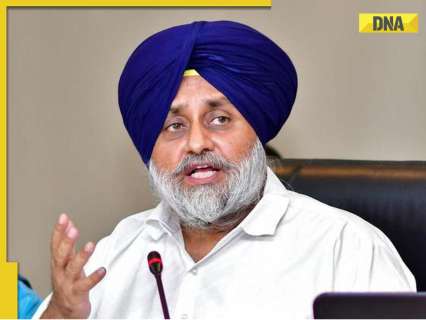Democratic challenger Adam Gray flips California’s 13th Congressional District in nation’s final House race

Democrat Adam Gray has won California’s 13th Congressional District race, defeating incumbent Republican Rep. John Duarte, according to The Associated Press. California’s 13th Congressional District was the last seat to be called, with the district being one of the most competitive races in the Golden State. Republicans maintained the majority with 220, with Democrats trailing at 216. Gray, a former state legislator who represented California’s 21st Assembly District from 2012 to 2022, is considered a centrist Democrat who focused on key concerns for farmers in the Central Valley like water shortages. He also campaigned on renewable energy solutions. HOUSE DEM MOVES TO FORCE VOTE ON RELEASING GAETZ ETHICS REPORT In a statement on X, Gray wrote that the long-awaited results were confirmation that residents were ready for “independent and accountable leadership.” “I’m honored to become the Congressman-elect for California’s 13th Congressional District. The final results confirm this district is ready for independent and accountable leadership that always puts the Valley’s people ahead of partisan politics,” he wrote. “But the work has just begun.” SINGLE HOUSE RACE STANDS BETWEEN REPUBLICANS AND 1-SEAT MAJORITY “In Washington, I’ll work everyday to deliver the resources that the Valley needs: clean water, better educational opportunities, stronger infrastructure, and more good-paying jobs,” he wrote. “And you can count on me to build bipartisan relationships to accomplish these goals.” The race has been characterized as one of the tightest in the country. In 2022, Duarte narrowly defeated Gray by just 564 votes. Duarte, a businessman and farmer, focused on issues like inflation, crime and agricultural issues during his campaign.
Celsius founder Alex Mashinsky pleads guilty to two fraud counts

Mashinsky was one of several crypto moguls charged with fraud after a slump in prices in 2022 caused firms to collapse. Alex Mashinsky, the founder and former CEO of cryptocurrency lender Celsius Network, has pleaded guilty in the United States to two counts of fraud. Mashinsky, 59, was indicted on July 13, 2023, on seven counts of fraud, conspiracy and market manipulation charges. Federal prosecutors in Manhattan said he misled Celsius customers to persuade them to invest, and artificially inflated the value of his company’s proprietary crypto token. He pleaded not guilty later that day. On Tuesday, during a hearing before US District Judge John Koeltl, Mashinsky said he pleaded guilty to two out of the seven counts he was initially charged with: commodities fraud and a fraudulent scheme to manipulate the price of CEL, Celsius’s in-house token. In court, Mashinsky admitted to giving Celsius customers “false comfort” by giving an interview in 2021 in which he said Celsius had received approval from regulators for its “Earn” programme, which it had not. The Earn programme allowed users to deposit cryptocurrencies like Bitcoin, Ethereum and Tether and receive weekly interest payments, offering as much as 18 percent annually. Advertisement He said he also failed to disclose that he had been selling his holdings of CEL. “I know what I did was wrong, and I want to try to do whatever I can to make it right,” Mashinsky said. As part of his plea deal with prosecutors, Mashinsky agreed not to appeal any sentence of 30 years or less – the maximum he faces for the two counts. Celsius Network founder Alex Mashinsky pleaded guilty to two of seven counts [File: Reuters TV via Reuters] Mashinsky was one of several crypto moguls to be charged with fraud after a slump in crypto prices in 2022 caused a number of companies, including the now-bankrupt exchange FTX, to collapse. Prices for digital assets like Bitcoin have since surged, in part due to optimism about US President-elect Donald Trump’s expected friendly policies towards cryptocurrency. Founded in 2017, Celsius filed for Chapter 11 bankruptcy protection in the US – which allows a business to continue operating while it works on a plan to repay its creditors – in July 2022 after customers rushed to withdraw deposits as crypto prices fell. Many were initially unable to access their funds. The company exited bankruptcy on January 31, and has pivoted to Bitcoin mining. Crypto lenders such as Celsius grew rapidly as crypto prices surged during the COVID pandemic. They promised easy loan access and eye-popping interest rates to depositors, then lent out tokens to institutional investors, hoping to profit from the difference. Celsius was among the first in a series of bankruptcies in the cryptocurrency sector in 2022 as token prices cratered amid rising interest rates and stubbornly high inflation. It filed for bankruptcy shortly after Singapore-based crypto hedge fund Three Arrows Capital and rival crypto lender Voyager Digital did so. Federal prosecutors in Manhattan accused Mashinsky and Celsius’s former chief revenue officer, Roni Cohen-Pavon, of manipulating the market for the company’s crypto token. Cohen-Pavon pleaded guilty in September 2023 and agreed to cooperate with the prosecutors’ investigation. Prosecutors have said Mashinsky also personally reaped approximately $42m in proceeds from selling his holdings of the CEL token. Advertisement Sam Bankman-Fried, the founder of FTX, was convicted of stealing roughly $8bn from the exchange’s customers in November 2023 and sentenced in March to 25 years in prison. Adblock test (Why?)
Russia-Ukraine war: List of key events, day 1,014

These were the key developments on the 1,014th day of the Russia-Ukraine war. Here is the situation on Wednesday, December 4: Fighting Russian drones struck critical infrastructure in Ukraine’s western Ternopil and Rivne regions overnight, the Ukrainian Air Force said. The attack left part of the city of Ternopil without electricity, the city’s mayor said, a week after Russian strikes cut power to much of the city and the surrounding region. Ukrainian President Volodymyr Zelenskyy called for major reinforcement of eastern sectors in Ukraine’s 1,000-km (600-mile) front line. Zelenskyy said that much depended on Ukraine’s Western allies providing vital weaponry, adding that the “greater our army’s firepower and technological capabilities, the more we can destroy Russia’s offensive potential”. Zelenskyy issued his appeal as Russia’s Ministry of Defence said its troops had captured two new front-line villages – the town of Kurakhove in the Donetsk region and the town of Novodarivka in the neighbouring Zaporizhia region. Russia’s air defence units were working to repel a Ukrainian drone attack on Novorossiysk, the mayor of the Russian Black Sea port city said early on Wednesday. Russian Navy frigates tested new generation Zircon (Tsirkon) hypersonic antiship missiles during drills in the eastern Mediterranean Sea, the Russian Defence Ministry reported. A Russian submarine also launched a Kalibr cruise missile, another weapon capable of carrying a nuclear warhead, while an Onyx antiship missile was also tested. Ukraine has conducted a test on new domestically-made missiles and is ramping up missile production, Zelenskyy said, without providing further details. A Russian Navy frigate fires a Zircon (Tsirkon) hypersonic antiship missile during drills as captured in this still image from a video released on December 3, 2024 [Russian Defence Ministry/Handout via Reuters] Politics and diplomacy NATO will step up intelligence sharing and improve the protection of critical infrastructure in the face of Russia’s “hostile” acts of sabotage, NATO chief Mark Rutte said in advance of a meeting of the alliance’s foreign ministers on Tuesday. Rutte added that the bloc needs to step up military aid to strengthen Kyiv’s position should it enter into peace negotiations with Moscow. While NATO political leaders have agreed “in principle” that Ukraine will join the transatlantic alliance, a number of members are waiting for Donald Trump’s administration to take office in the United States before approving the move, Latvian Minister for Foreign Affairs Baiba Braze told the Reuters news agency at the meeting. Ukraine declared it would not settle for anything less than NATO membership to guarantee its future security, as the alliance sidestepped Kyiv’s call for an immediate membership invitation at Tuesday’s foreign ministers’ meeting. Ukraine needs robust security guarantees and a just peace, German Foreign Minister Annalena Baerbock said on the sidelines of the NATO meeting, adding that Kyiv alone would decide when to start negotiations with Russia. Italy is preparing a new military aid package for Ukraine, two sources close to the matter have told the Reuters news agency, in a renewed show of support for Kyiv from Italian Prime Minister Giorgia Meloni. A Russian presidential aircraft and money were used in a Kremlin-funded programme that took at least 314 children from occupied Ukrainian territories and placed them with Russian families, according to a US State Department-backed report by Yale’s School of Public Health. State-owned Polish insurer PZU wants to finance projects of dual military and civilian use, the company’s president Artur Olech said, as the country ramps up defence spending after Russia’s invasion of Ukraine. Olech did not provide details but ruled out purely military projects. The Kremlin said a US decision to send another weapons package to Ukraine worth $725m shows the outgoing administration of President Joe Biden is determined to throw oil on the fire of the war in Ukraine to ensure the conflict keeps going. Advertisement Adblock test (Why?)
SAD Chief Sukhbir Singh Badal shot at Golden Temple

On Wednesday, gunfire erupted at the Golden Temple in Amritsar, Punjab, where leaders of the Shiromani Akali Dal (SAD), including party chief Sukhbir Singh Badal, were engaged in a religious penance known as ‘seva.’ This act of service was mandated by Sri Akal Takht Sahib as a consequence of their past actions during their governance from 2007 to 2017.
Federal judge accuses President Biden of attempting to ‘rewrite history’ in Hunter Biden pardon

The federal judge overseeing Hunter Biden’s tax case issued a sharp rebuke of President Biden’s claim that his son was unfairly treated as well as the president’s delivery method following the president’s last-minute pardon. U.S. District Judge Mark Scarsi, who is based in the Central District of California and was nominated by President-elect Trump, accused President Biden in a scathing five-page order of “rewriting history” with the pardon and suggested that the breadth of the pardon granted to his son is unconstitutional. “The Constitution provides the President with broad authority to grant reprieves and pardons for offenses against the United States, but nowhere does the Constitution give the President the authority to rewrite history,” he wrote. BIDEN PARDONS SON HUNTER BIDEN AHEAD OF EXIT FROM OVAL OFFICE The judge voiced his displeasure that the president alerted the judicial system of his order to pardon his son via a White House press release. “Rather than providing a true and correct copy of the pardon with the notice, Mr. Biden provided a hyperlink to a White House press release presenting a statement by the President regarding the pardon and the purported text of the pardon,” he wrote. “In short, a press release is not a pardon,” he continued. READ – APP USERS CLICK HERE: Scarsi continued, reacting to the president’s statement on his son’s tax case: “the President asserts that Mr. Biden ‘was treated differently’ from others ‘who were late paying their taxes because of serious addictions,’ implying that Mr. Biden was among those individuals who untimely paid taxes due to addiction. But he is not.” “According to the President, ‘[n]o reasonable person who looks at the facts of [Mr. Biden’s] cases can reach any other conclusion than [Mr. Biden] was singled out only because he is [the President’s] son.’ But two federal judges expressly rejected Biden’s arguments that the Government prosecuted Mr. Biden because of his familial relation to the President. And the President’s own Attorney General and Department of Justice personnel oversaw the investigation leading to the charges,” Scarsi wrote. 2 TIMES BIDEN SAID HE WOULD NOT PARDON SON HUNTER BIDEN “In the President’s estimation, this legion of federal civil servants, the undersigned included, are unreasonable people,” he said. The judge said he would dispose of the case once he receives the official pardon from “the appropriate executive agency.” He also vacated Hunter Biden’s sentencing, which was scheduled for Dec. 16. The charges carried up to 17 years behind bars, but the first son would likely have faced a much shorter sentence under federal sentencing guidelines. TRUMP PREVIOUSLY PREDICTED BIDEN WOULD PARDON SON HUNTER “Subject to the following discussion, the Court assumes the pardon is effective and will dispose of the case. The Supreme Court long has recognized that, notwithstanding its nearly unlimited nature, the pardon power extends only to past offenses,” he wrote. Hunter Biden, 54, has had a busy year in court, kicking off his first trial in Delaware in June, when he faced three felony firearm offenses, before he pleaded guilty in a separate felony tax case in September. President Biden pardoning his son is a departure from his previous remarks to the media over the summer when he insisted he would not pardon the first son. “Yes,” President Biden told ABC News when asked if he would rule out pardoning Hunter ahead of his guilty verdict in the gun case. Days later, following a jury of Hunter’s peers finding him guilty of three felony firearm offenses, the president again said he would not pardon his son. “I am not going to do anything,” Biden said after Hunter was convicted. “I will abide by the jury’s decision.” Fox News Digital has reached out to the White House for comment. Fox News Digital’s Emma Colton and Andrea Margolis contributed to this report.
Namibia elects Nandi-Ndaitwah as country’s first woman president

Netumbo Nandi-Ndaitwah, 72, won with 57 percent of the vote, flouting predictions that she might be forced into a run-off. Netumbo Nandi-Ndaitwah has been elected Namibia’s president and will be the country’s first female leader, results released by the country’s electoral commission show. The 72-year-old won with 57 percent of the vote, according to official results declared on Tuesday by the electoral commission, flouting predictions that she might be forced into a run-off. “The Namibian nation has voted for peace and stability,” Nandi-Ndaitwah said after being declared president-elect. Her win cements her governing South West Africa People’s Organisation (SWAPO) party’s 34-year hold on power since independence from apartheid South Africa in 1990 – a contested outcome. Opposition parties have rejected the results after the election was marred by technical problems, including shortages of ballot papers and other issues, causing election officials to extend voting until Saturday. Long queues meant that some voters gave up on the first day of voting after waiting for up to 12 hours. The opposition parties say the extension was illegal and have pledged to challenge the results in court. Advertisement The candidate for the main opposition Independent Patriots for Change (IPC), Panduleni Itula, trailed Nandi-Ndaitwah with 25.5 percent of the vote, according to the commission. “The rule of law has been grossly violated and we cannot call these elections by any means or measure as free, fair and legitimate,” Itula said on Saturday. Nandi-Ndaitwah was promoted to vice president in February after President Hage Geingob died while in office. While in power for decades, SWAPO has disenchanted young voters due to high youth unemployment rates and enduring inequalities. She got her start in politics by taking part in the country’s underground independence movement in the 1970s. She returned from the UK to join parliament in 1990 and went on to serve as minister with several portfolios over the years. Adblock test (Why?)
Meta says AI had only ‘modest’ impact on global elections in 2024

Despite fears that artificial intelligence (AI) could influence the outcome of elections around the world, the United States technology giant Meta said it detected little impact across its platforms this year. That was in part due to defensive measures designed to prevent coordinated networks of accounts, or bots, from grabbing attention on Facebook, Instagram and Threads, Meta president of global affairs Nick Clegg told reporters on Tuesday. “I don’t think the use of generative AI was a particularly effective tool for them to evade our trip wires,” Clegg said of actors behind coordinated disinformation campaigns. In 2024, Meta says it ran several election operations centres around the world to monitor content issues, including during elections in the US, Bangladesh, Brazil, France, India, Indonesia, Mexico, Pakistan, South Africa, the United Kingdom and the European Union. Most of the covert influence operations it has disrupted in recent years were carried out by actors from Russia, Iran and China, Clegg said, adding that Meta took down about 20 “covert influence operations” on its platform this year. Advertisement Russia was the number one source of those operations, with 39 networks disrupted in total since 2017, followed by Iran with 31, and China with 11. Overall, the volume of AI-generated misinformation was low and Meta was able to quickly label or remove the content, Clegg said. That was despite 2024 being the biggest election year ever, with some 2 billion people estimated to have gone to the polls around the world, he noted. “People were understandably concerned about the potential impact that generative AI would have on elections during the course of this year,” Clegg told journalists. In a statement, he said that “any such impact was modest and limited in scope”. AI content, such as deepfake videos and audio of political candidates, was quickly exposed and failed to fool public opinion, he added. In the month leading up to Election Day in the US, Meta said it rejected 590,000 requests to generate images of President Joe Biden, then-Republican candidate Donald Trump and his running mate, JD Vance, Vice President Kamala Harris and Governor Tim Walz. In an article in The Conversation, titled The apocalypse that wasn’t, Harvard academics Bruce Schneier and Nathan Sanders wrote: “There was AI-created misinformation and propaganda, even though it was not as catastrophic as feared.” However, Clegg and others have warned that disinformation has moved to social media and messaging websites not owned by Meta, especially TikTok, where some studies have found evidence of fake AI-generated videos featuring politically related misinformation. Propaganda on social platforms such as Facebook was not as ‘catastrophic’ as feared, academics say [Michael M Santiago/Getty Images/AFP] Public concerns Advertisement In a Pew survey of Americans earlier this year, nearly eight times as many respondents expected AI to be used for mostly bad purposes in the 2024 election as those who thought it would be used mostly for good. In October, Biden rolled out new plans to harness AI for national security as the global race to innovate the technology accelerates. Biden outlined the strategy in a first-ever AI-focused national security memorandum (NSM) on Thursday, calling for the government to stay at the forefront of “safe, secure and trustworthy” AI development. Meta has itself been the source of public complaints on various fronts, caught between accusations of censorship and the failure to prevent online abuses. Earlier this year, Human Rights Watch accused Meta of silencing pro-Palestine voices amid increased social media censorship since October 7. Meta says its platforms were mostly used for positive purposes in 2024, to steer people to legitimate websites with information about candidates and how to vote. While it said it allows people on its platforms to ask questions or raise concerns about election processes, “we do not allow claims or speculation about election-related corruption, irregularities, or bias when combined with a signal that content is threatening violence”. Clegg said the company was still feeling the pushback from its efforts to police its platforms during the COVID-19 pandemic, resulting in some content being mistakenly removed. “We feel we probably overdid it a bit,” he said. “While we’ve been really focusing on reducing prevalence of bad content, I think we also want to redouble our efforts to improve the precision and accuracy with which we act on our rules.” Advertisement Republican concerns Some Republican lawmakers in the US have questioned what they say is censorship of certain viewpoints on social media. President-elect Donald Trump has been especially critical, accusing its platforms of censoring conservative viewpoints. In an August letter to the US House of Representatives Judiciary Committee, Meta CEO Mark Zuckerberg said he regretted some content take-downs the company made in response to pressure from the Biden administration. In Clegg’s news briefing, he said Zuckerberg hoped to help shape President-elect Donald Trump’s administration on tech policy, including AI. Clegg said he was not privy to whether Zuckerberg and Trump discussed the tech platform’s content moderation policies when Zuckerberg was invited to Trump’s Florida resort last week. “Mark is very keen to play an active role in the debates that any administration needs to have about maintaining America’s leadership in the technological sphere … and particularly the pivotal role that AI will play in that scenario,” he said. Adblock test (Why?)
US says it carried out strike against ‘imminent threat’ in Syria

The attack comes as violence in Syria intensifies, with opposition fighters advancing against government positions. Washington, DC – The Pentagon has confirmed that the United States carried out a strike against military assets in eastern Syria after a rocket attack near one of its bases. Pentagon spokesperson Pat Ryder told reporters on Tuesday that the US military struck weapons systems — including rocket launchers and a tank — that “presented a clear and imminent threat” to its forces in the area. The US strike comes as violence escalates across the war-torn country. Over the last week, armed opposition groups carried out a blistering offensive in northwest Syria against the government forces led by President Bashar al-Assad, ushering in a new stage of the country’s long-running civil war. The offensive has raised questions about how the US might respond and whether it could become entangled in the conflict, given its significant military presence in Syria. Ryder said on Tuesday that the attack was in response to a rocket launch that fell “in the vicinity” of Military Support Site (MSS) Euphrates, a US base in eastern Syria. Advertisement He added that it is not clear who was operating the weapons, but Iran-backed groups and Syrian government forces are known to be in the area. The Pentagon spokesperson stressed that the action is “not linked to any broader activities in northwest Syria by other groups”. But on Tuesday, Damascus accused the US of providing air support for the Kurdish-dominated Syrian Democratic Forces (SDF), which pushed to advance against government-controlled villages east of the Euphrates River, near the city of Deir ez-Zor. The SDF has received US support for years under the stated aim of fighting ISIL (ISIS). Syrian state-run Alikhbaria TV reported on Tuesday that clashes were taking place between SDF and government forces near the village of Tabiyet Jazira “with the intervention of US occupation jets that are targeting the frontlines in the area”. The SDF had claimed earlier in the day that it took control of seven villages east of the Euphrates due to the “serious threat related to the imminent movement of large ISIS terrorist cells”. “The deployment of our forces to these villages is in response to the urgent pleas and appeals of the local populace, following the increasing potential risks that ISIS will exploit the events in the west of the country,” the SDF’s Deir ez-Zor Military Council said in a statement. But the Syrian government said the villages remain under its control. Farther west, government troops have been battling rebels trying to advance towards the central city of Hama as the front lines of the war, which had gone mostly dormant over the past four years, see major shifts. Advertisement Rebel groups, led by Hayat Tahrir al-Sham (HTS), which had been confined to the northwestern Idlib province, launched their offensive last week, taking control of Aleppo and heading south towards Hama. The country had experienced relative calm since 2020 with the government, rebel groups and SDF largely remaining within their unofficial territories. But the opposition appears to have struck at an opportune moment when President al-Assad’s main military backers — Russia, Iran and Lebanon’s Hezbollah — are focusing on their own conflicts elsewhere. The US, which calls Assad a “brutal dictator”, has denied any involvement in the rebels’ offensive, highlighting that Washington considers HTS to be a “terrorist” group. HTS is a reiteration of al-Nusra Front, which operated as al-Qaeda’s branch in Syria early in the war. According to the Pentagon, Washington has 900 troops in Syria and a deep alliance with the SDF, one of the major parties to the conflict. On Tuesday, the Pentagon’s Ryder declined to answer questions about the SDF’s operations in the Deir ez-Zor area. “Our focus has been on working with the SDF as it relates to countering ISIS, and that continues to be our focus,” he said. Adblock test (Why?)
Indian Navy Day 2024: Know history, importance and theme of the day

The theme for Indian Navy Day 2024 is “Strength and Power through Innovation and Indigenisation.” This theme emphasises the Navy’s commitment to self-reliance, technological advancement, and innovation in enhancing its operational capabilities.
Shillong Teer Results TODAY December 4, 2024 Live Updates: Check lucky winning numbers, prize money

Shillong Teer is not just a lottery but also a reflection of the region’s culture and traditional archery practices. It provides livelihood opportunities for many, from archers to ticket sellers.

